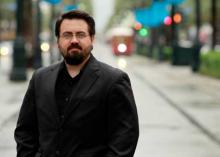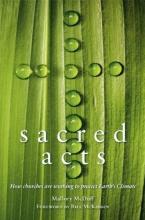skeptics

By definition, skeptics are pretty skeptical. They question what they see as unfounded claims or dubious motivations, whatever the source. Now, they are questioning some of their own leaders.
With the success of organizations such as The Clergy Project — an online community seeking to provide a safe place for clergy members who reject supernatural beliefs — numerous former ministers are joining the ranks of the publicly nontheistic.
Some have risen to the leadership of prominent atheist organizations. Last week, Teresa MacBain was dismissed from her high-profile position at Harvard University’s Humanist Community after it was revealed she inflated her resume. The former United Methodist pastor claimed a degree from Duke Divinity School she did not have.
“Our society needs so much and thriving secular communities could make significant contributions, ” wrote Donald Wright, author and organizer of the Day of Solidarity for Black Non-Believers, on Freethought Blogs. But, he added, “My unsolicited advice is to be skeptical of this new wave of leadership.”

IN THE FOREWORD to Sacred Acts: How Churches Are Working to Protect Earth's Climate, prolific scholar-activist Bill McKibben recalls a time not long ago when many people of faith regarded environmentalism suspiciously—conservatives saw it as a cover for possible paganism, while liberals considered it less of a priority than problems such as war and poverty. Now, however, theologians and religious leaders discuss the environment almost as much as ecologists and Nobel prize-winning scientists do. As this book shows, moreover, the environmental movement now includes religious organizations such as Earth Ministry, Interfaith Power & Light, and GreenFaith, which are working at the grassroots level in congregations and communities.
Edited by Mallory McDuff, a lay Episcopalian who teaches environmental education at Warren Wilson College near Ashville, N.C., Sacred Acts boldly focuses on climate change. McDuff believes that momentum is building among Christian communities worldwide as they call for just climate solutions—much like a modern Pentecost moment. The book addresses both skeptics and those who know climate change is real but feel overwhelmed by the problem's magnitude and despair of finding and implementing solutions.
The contributors to Sacred Acts include clergy, teachers, activists, directors of nonprofit organizations, and a farmer. Its 12 chapters are divided into four sections on the themes and strategies of stewardship, spirituality, advocacy, and justice.
On a recent trip to the African nation of Ghana, Bono of U2 and economist Jeffrey Sachs spoke to the U.K. Guardian newspaper about their hopes for the future of foreign aid.
"There's one thing that might help with aid cynics. Because clearly no one likes the culture of dependency," Bono said. "No one's arguing for it. We're arguing to end it. I think there's something a bit funky about aid as it stands right now. The two most important parties involved in the transaction – the taxpayer who's providing the resources and the person who needs those resources to stay alive or keep their family alive – are the two people who know the least about what's going on. So that has to change."